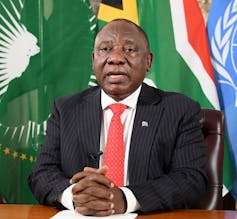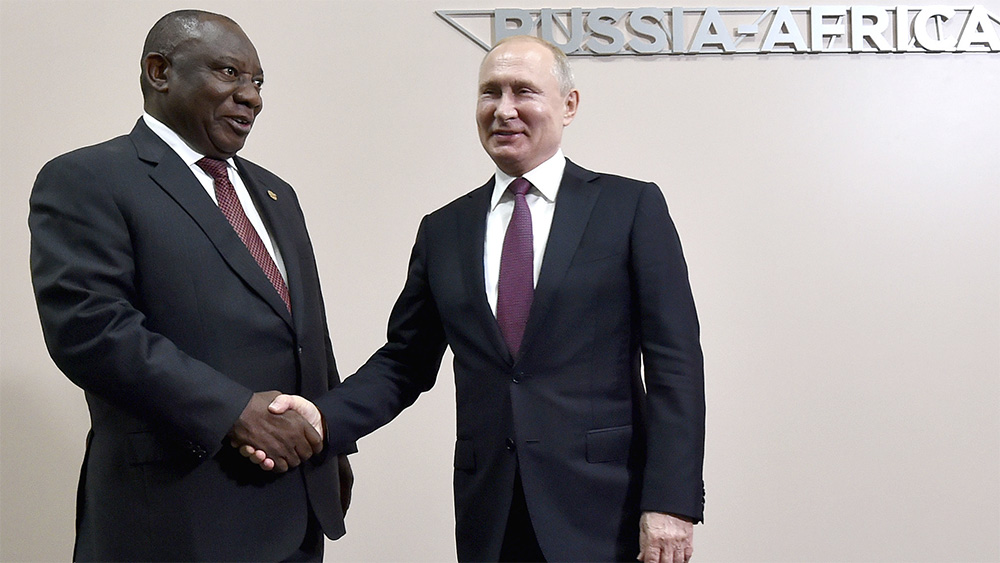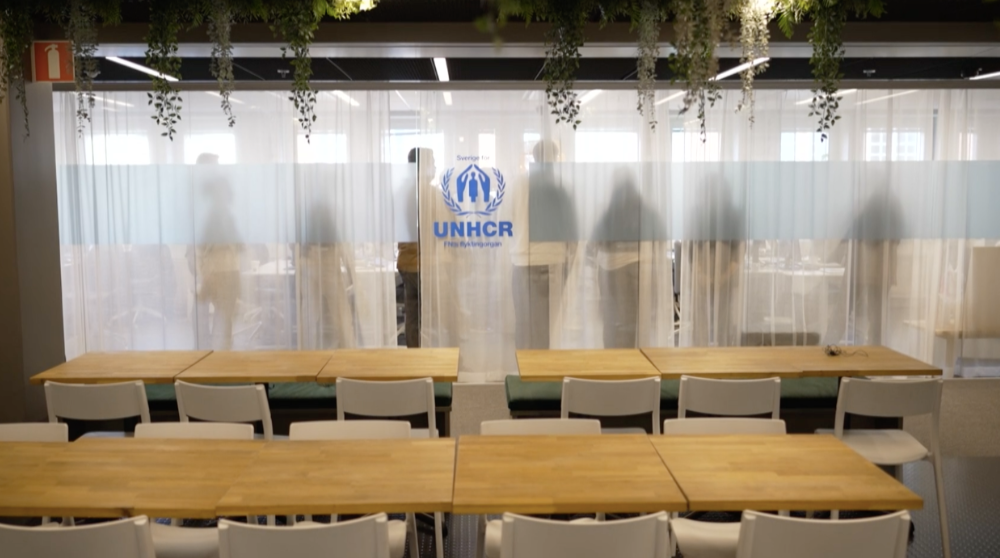South Africa’s President Cyril Ramaphosa is set to lead an initiative of six African heads of state to explore an end to the year-long Russia-Ukraine war. Observers have both lauded and derided the African initiative. To supporters, it’s about growing African agency. Critics see it as a misguided initiative by African leaders who have surreptitiously supported Russia’s invasion of Ukraine while claiming non-alignment, writes Gilbert M. Khadiagala from University of the Witwatersrand.
The announcement followed his phone calls with both Russian president Vladimir Putin and Ukraine president Volodymyr Zelensky. The mission is expected to take place in June.
The warring countries have both welcomed the initiative by Ramaphosa and the leaders of Egypt, Republic of Congo, Senegal, Uganda and Zambia.
Africa has an interest in this war because of its economic toll. Fuel and food prices have increased substantially.
Various observers have both lauded and derided the African initiative. To supporters, it’s about growing African agency. And African voices would bring a measure of neutrality required to unlock the stalemate. Critics see it as a misguided initiative by African leaders who have surreptitiously supported Russia’s invasion of Ukraine while claiming non-alignment. As one critic noted:
The African initiative will make no difference whatsoever to the situation in Ukraine. Both Putin and Zelensky will receive the delegation with protocol and politeness and send it on its way.
In addition, as the spokesman for UN secretary general António Guterres warned, any intervention must align with the UN Charter, international law and UN General Assembly resolutions. Where does the truth lie?
The ‘Africa Six’
I have studied African mediators over 30 years, probing their strengths and weaknesses.
To achieve a peaceful settlement, African mediators would need leverage over the warring parties. The Ramaphosa team has none. But the initiative lays the groundwork for other mediators with more clout and better understanding of the context of the conflict.

First, a look at the would-be mediation team:
- Although he has consistently invoked the non-aligned stance, Ramaphosa is very close to Putin. And the US has accused South Africa of having supplied arms to Russia in December 2022. South Africa (alongside Senegal and Uganda) abstained from condemning Russia’s invasion during the March 2022 UN General Assembly resolution on the war.
- Egypt’s Abdel Fattah El-Sisi represents North Africa, an important constituency in the African Union (AU).
- Congo’s Denis Sassou Nguesso, one of Africa’s oldest presidents, is a close ally of France. There is no other leader who would credibly represent Central Africa.
- Senegal’s Macky Sall led the first AU mission to Russia at the start of the war, pleading for peace on Africa’s behalf. Given his knowledge of the conflict, he will contribute a lot to the group.
- President Yoweri Museveni of Uganda is Putin’s ally and has not been apologetic about it. He is fond of rambling through historical details, and needs a strong leader to bring him to order.
- Finally, President Hakainde Hichilema of Zambia, elected in October 2021, exudes the confidence of Africa’s young generation. He will bring moderation and seriousness to the team.
The mission: fact-finding, not mediation
Critics and supporters alike have mischaracterised the invitation as mediation. The mission will simply be a preliminary fact-finding effort to explore whether the conditions are ripe for mediation, and whether the belligerents are ready to consider it.
Among mediation scholars, the mission will be an essential element of pre-negotiation. This is when third parties help the warring sides to see the attractiveness of peace.
The African leaders are going to be useful in this regard. Their increasingly precarious economic conditions could help persuade Russia and Ukraine to end the conflict.
If the African initiative succeeds in this critical phase, it will be a case of the power of weakness: small countries shaming and cajoling big powers to get to outcomes that would benefit all.
Their work will then come to an end.
Individually or together, the African presidents are not capable of mediating the conflict, for reasons I have documented elsewhere. As serving heads of state, African presidents do not have the time or energy to conduct mediation, even if they wanted to. Mediation efforts are often cumbersome and time consuming.
Six presidents would be a crowd anyway, and would probably not mediate credibly. It would equally be folly for the six to appoint a small team to lead the mediation, because the mediators would need sound knowledge of the parties and context and be able to converse in Slavic languages. Mediation through translators is often not a useful exercise.
For these reasons, the “African Six” will need to cede the mediation role to one or two of the many mediators who have previously shown interest in the conflict. Regional players such as Turkey and Israel could potentially pool resources to appoint professional mediators to lead the process, with the United Nations playing a secondary role.
A Helsinki Process?
Alternatively, a Swiss-led mediation initiative in Geneva comprising the major regional actor, the Organisation for Security and Cooperation in Europe (OSCE), would be preferable because of geographical proximity and knowledge of the actors and issues. It would also build on the successful Helsinki Process that the OSCE launched in the 1970s to end tensions between the East and West. A mediation led by the Helsinki Process actors would be a step towards repairing relations between NATO and Russia.
Where would this leave the African Six?
The most appropriate role for African representatives from the six countries would be as “friends of the process”, observers at the negotiations. At the negotiating table, they would also serve as the conscience of the world, underscoring the urgency of a peaceful solution to the conflict.
Gilbert M. Khadiagala
Jan Smuts Professor of International Relations and Director of the African Centre for the Study of the United States (ACSUS) at University of the Witwatersrand.
This article is republished from The Conversation under a Creative Commons license. Read the original article.
|
Uppläsning av artikel
|


